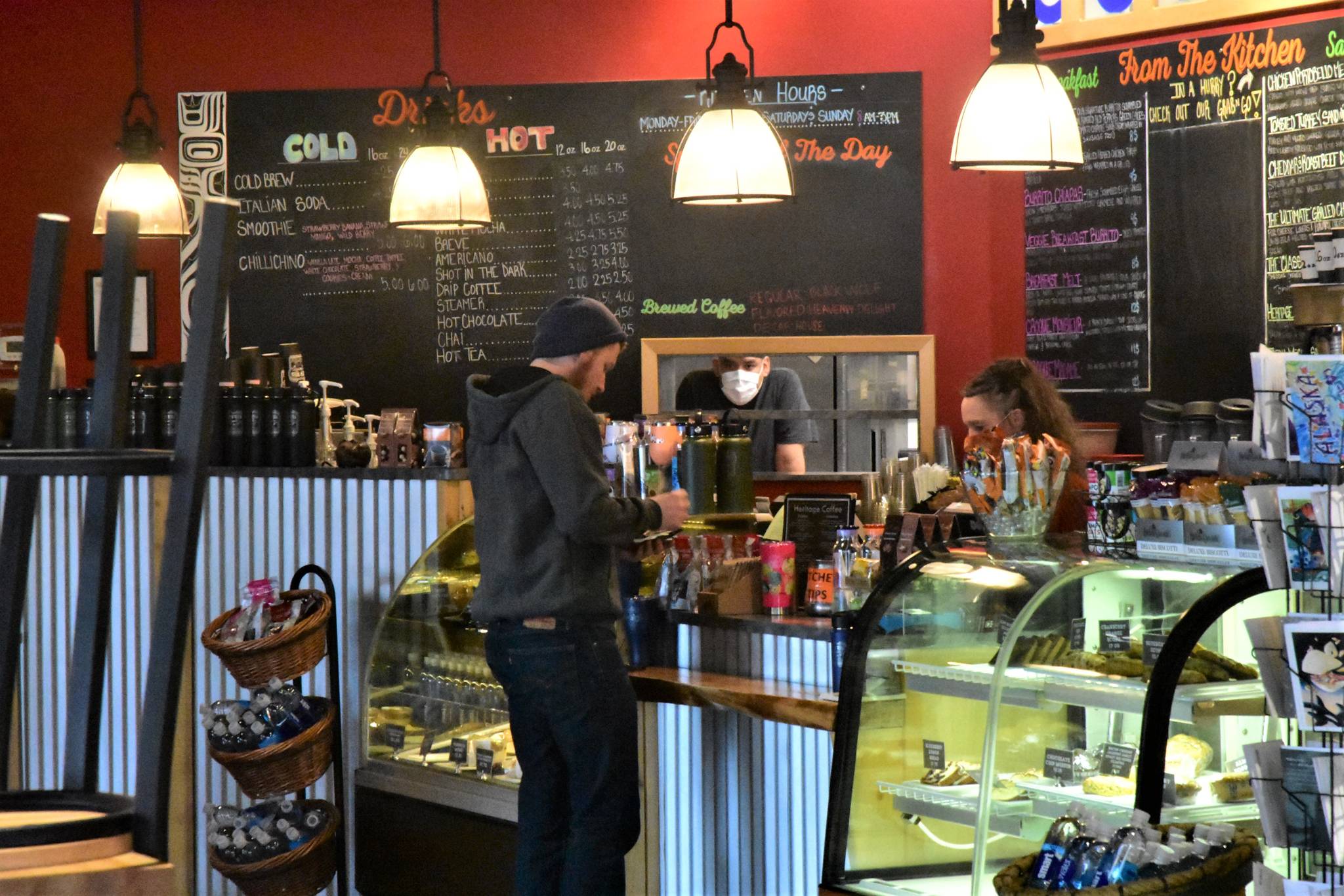The City and Borough of Juneau Assembly will go along with the governor’s health mandates for reopening businesses in the state, deciding not to make any modifications to orders from the state.
At their virtual meeting Monday night, Assembly members spent more than an hour questioning Chief Medical Officer Dr. Anne Zink, who helped to ease concerns some assembly members had about opening up.
Members voted down a resolution that would have limited the number of people allowed at a gathering to 10, rather than the 20 allowed by last week’s mandate from Gov. Mike Dunleavy. Only two Assembly members voted for the resolution, Rob Edwardson and Carole Triem.
Even though it didn’t pass, Triem says she’s comfortable enough with the governor’s rules to be happy with the outcome either way.
“I had those concerns and still have those concerns,” Triem said Tuesday in a phone interview. “I think we’re all going to be paying really close attention to the numbers, and if we need to, we’ll probably roll some things back.”
Zink’s explanation of the state’s health apparatus and testing capacity helped assuage some of the fears Assembly members had about the city’s ability to react to a potential resurgence in cases. The state has the ability to take the samples necessary for a COVID-19 test across the state, but the ability to process those samples is still limited to state and private laboratories outside of Juneau and Alaska.
Bartlett Regional Hospital CEO Chuck Bill previously told the Assembly that using a private lab in Arizona, the typical turn-around time for COVID-19 test results was roughly 48 hours from the time the samples leave Juneau by plane at 5 p.m. in the evening.
[Businesses open, even if just a little]
Still, Zink said, the number of tests done in the state is quite high and comparable to countries like Germany in how many tests they were able to complete each month. Health experts were looking at testing numbers in terms of per thousand per month, Zink said, and Alaska was currently testing at 22 per thousand per month.
“It’s not only how many tests, but are you doing it in the right facilities,” Zink said. “We want to make sure those who are vulnerable, and our health care facilities are tested regularly and often.”
Zink also told the Assembly the state has roughly 100 people working on tracking and tracing any potential contacts known cases might have had, and was hoping to increase that number up to 250.
After speaking to Zink, Assembly members said they felt confident in the city and state’s ability to manage the current level of reopening.
“There’s still concern but the information received help fill in some blank spots that we had,” said Deputy Mayor Maria Gladziszewski. “It was sort of a judgment call, given the data that we have and Dr. Zink’s apparent ‘on-top-of-it-ness.’”
At least for now the Assembly feels there’s no need to modify the governor’s orders. If the Assembly opts to make changes in the future, its members said it’s their understanding that they will be able to do so without approval from the governor’s office.
When Dunleavy originally released Health Mandate 16 allowing the limited reopening of certain businesses, it contained a paragraph that stated local municipalities would not be able to enact stricter mandates. But that language was removed, and as Assembly members say they have the ability to enact their own mandates independent of the governor.
Dunleavy previously said, barring a setback, he hopes to begin the next phase of his plan for reopening Alaska’s economy in early May, but for now, local leaders feel Dunleavy’s approach is reasonable.
“We need to monitor closely the outcomes and take steps to reinstate restrictions if need,” Gladziszewski said. “Lessons from the pasts say swift acting is better than perfect acting later.”
• Contact reporter Peter Segall at psegall@juneauempire.com. Follow him on Twitter at @SegallJnoEmpire.

